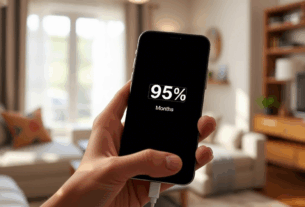Wireless Charging Speed Review: A Balanced Look at Convenience vs. Efficiency
Wireless charging has become a staple in modern smartphones, offering a clutter-free way to power up our devices. But how does it compare to traditional wired charging in terms of speed? In this review, we’ll take a measured look at wireless charging speeds, exploring the trade-offs between convenience and efficiency.

The Basics of Wireless Charging Speeds
Most modern smartphones support Qi wireless charging, with speeds varying depending on the device and charger used. Standard wireless chargers typically deliver between 5W to 15W, while premium models (like those supporting MagSafe or Fast Wireless Charging) can reach up to 15W or higher for compatible devices.
Key Factors Affecting Wireless Charging Speed
- Charger Wattage – A 5W charger will naturally be slower than a 15W or 20W model.
- Device Compatibility – Not all phones support the highest wireless charging speeds (e.g., iPhones max out at 15W with MagSafe, while some Android phones go up to 50W).
- Alignment & Distance – Proper placement on the charging pad is crucial; misalignment can reduce efficiency.
- Heat Management – Wireless charging generates heat, which can slow down charging to protect the battery.
Wireless vs. Wired Charging: A Realistic Comparison
While wireless charging is undeniably convenient, it’s still slower than wired options. For example:
- A 30W wired charger can refill a phone battery in about an hour.
- A 15W wireless charger might take 2 to 3 hours for a full charge.
This difference is due to energy loss during wireless power transfer. However, for overnight charging or desk use, the slower speed may not be a significant drawback.
Is Faster Wireless Charging Worth It?
Manufacturers are pushing for higher wireless charging speeds, but there are trade-offs:
✔ Convenience – No cables, easy drop-and-charge use.
✔ Reduced Port Wear – No risk of damaging charging ports over time.
✖ Slower Speeds – Still lags behind wired charging.
✖ Heat Concerns – Faster wireless charging can lead to more heat, potentially affecting battery longevity.
If you prioritize speed, wired charging remains the best choice. But if convenience matters more, wireless charging—especially at 10W or 15W—is a solid option.
Final Thoughts
Wireless charging is a fantastic feature for those who value ease of use over raw speed. While it won’t replace wired charging for quick top-ups, improvements in technology are making it a more viable everyday option. For now, choosing a mid-range wireless charger (10W-15W) strikes a good balance between speed and practicality.
What’s your experience with wireless charging speeds? Do you prefer the convenience, or do you stick with wired for faster power-ups? Let us know in the comments!


